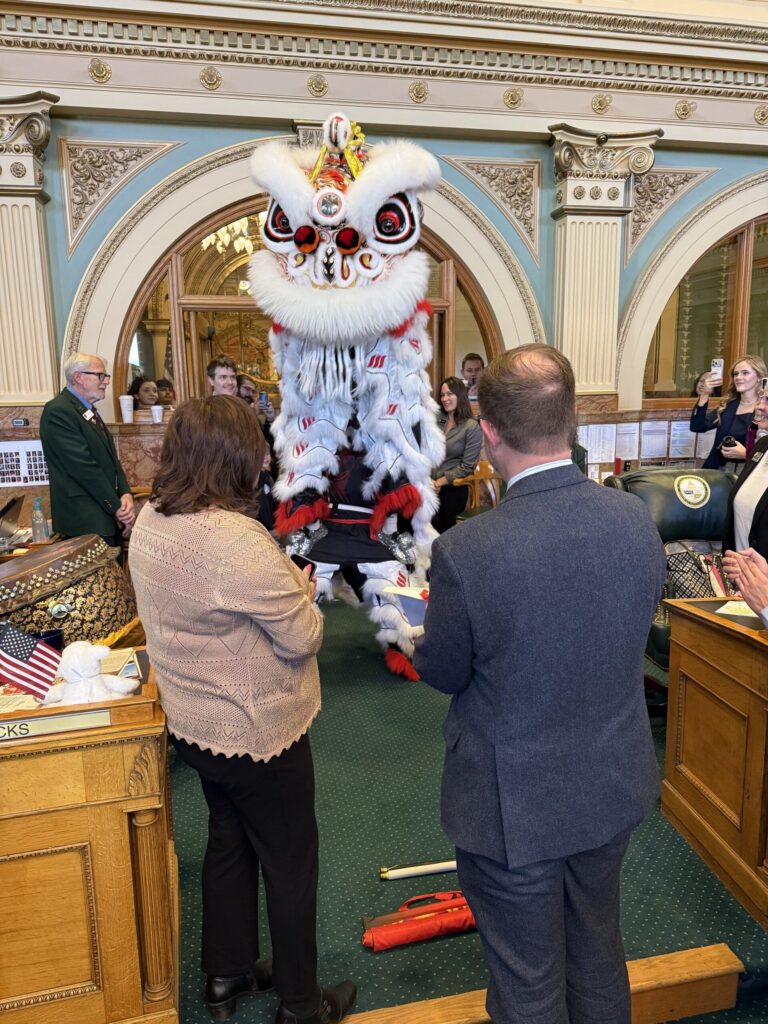Ex-staffers: Office of Public Guardianship is in crisis, lawmakers under pressure to regular funeral industry | WHAT YOU NEED TO KNOW

Today is Feb. 21, 2024, and here’s what you need to know:
Ex-staffers say Colorado's Office of Public Guardianship is in crisis, ask Polis to replace leaders
A Colorado office tasked with taking care of some of the state’s most vulnerable citizens is once more facing questions about its management, notably after resignations have left it with just a few staffers to care for more than 80 clients.
The Office of Public Guardianship is down to two remote guardians, who may live four to six hours away from their wards and who aren’t tasked with in-person visits, and it has no in-person guardian for its Denver-based district, Colorado Politics has learned.
The remote guardians are responsible for the office’s 82 clients, who are primarily based in mental health facilities in Denver and Pueblo.
“We can no longer sit back and watch this office be set up to fail,” seven former guardians who have resigned in the past year wrote Gov. Jared Polis earlier this month.
Colorado lawmakers under pressure to regulate funeral industry after urns, body found in Denver home
Lawmakers at the state Capitol face increasing pressure to develop policies to get the funeral industry back under more stringent state regulation after the discovery of cremains and a body left in a hearse in Denver last week.
The incident marks the latest in which authorities said the bodies or remains of people had been improperly stored by funeral homes or individuals who work in the industry.
Lawmakers are preparing three bills, which should surface within the next few weeks.
The first bill will be tied to a sunset review of the funeral home and crematorium industry. The House Business Affairs & Labor Committee is scheduled to tackle that sunset review on Wednesday. Lawmakers are likely to decide on legislation enacting the recommendations of the review during the hearing. Rep. Matt Soper, R-Delta, is expected to carry those proposed changes.
Colorado Supreme Court upholds murder convictions of Sir Mario Owens
The Colorado Supreme Court on Tuesday upheld the 2008 murder convictions of Sir Mario Owens, rejecting a long list of alleged errors in one of the most high-profile criminal cases in recent state history.
Arapahoe County jurors previously found Owens guilty of the 2005 murders of Javad Marshall-Fields and Vivian Wolfe in Aurora. Marshall-Fields was a witness to a murder Owens committed the previous summer in Lowry Park and Wolfe was his fiancée.
Owens was among the handful of death row inmates at the time Colorado’s legislature abolished capital punishment in 2020. Gov. Jared Polis commuted his sentence to life in prison when the death penalty was abolished. Marshall-Fields’ mother, Sen. Rhonda Fields, D-Aurora, opposed the repeal.
Disruptions, protests plague council meetings in metro Denver
Disruptions have plagued the Denver City Council in the last several months, forcing it to go into recess or shut down proceedings as the meetings devolved into chaos.
In at least one instance, a disruption compelled councilmembers, subjected to incessant yelling by protesters, to vote against the preferred outcome of the protesters.
“By what has happened in chambers today and the lack of respect and the lack of ability to have a civil discourse and conversation, I am going to have to be a no on this one,” District 7 Councilwoman Flor Alvidrez said earlier this month, when she, along with several others, rejected a proclamation calling for a “cease-fire” of the Israel-Hamas war.
Alvidrez later told The Denver Gazette that the council “will not be bullied into submission.”
Colorado justices rule tenants may cite landlords' discrimination as defense to eviction
The Colorado Supreme Court clarified on Tuesday that tenants defending against an eviction may cite their landlords’ illegal, discriminatory conduct as means to stay in their homes.
Last year, the legislature passed a law explicitly providing that a renter can defend against eviction if they show their landlord violated the Colorado Fair Housing Act and its prohibitions against discrimination on the basis of race, sex or other protected characteristics. However, the Supreme Court has now concluded tenants always had the ability to forestall evictions that violate the state’s fair housing laws.
“The General Assembly’s primary purpose in enacting the CFHA is turned on its head if a landlord is simultaneously prohibited from and allowed to engage in a discriminatory or retaliatory eviction,” wrote Justice Maria E. Berkenkotter in the Feb. 20 opinion.












